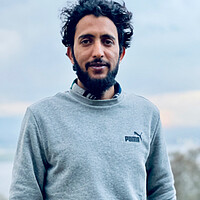What the Dalai Lama said about the India rape case at the Jaipur Literature Festival
Loading...
| Jaipur, India
Crowds lined his path and leaned off arched terraces to catch a glimpse of the Dalai Lama at his first ever appearance at the Jaipur Literature Festival. The annual gathering, Asia's largest, of literati in this city of desert palaces has begun to attract global celebrities in recent years, with even Oprah Winfrey holding court here last year.
The Tibetan spiritual leader addressed a crowd of about 4,000 in a conversation with his biographer Pico Iyer.
Calling the 20th century a century of bloodshed and violence, the Dalai Lama urged that the “21st century be a century of dialogue.” The title of his talk, "Kinships of Faiths: Finding the Middle Way," headlined his hopes for comity even in the potential divisive realm of religion.
In his words, secularism is mostly misunderstood as being against religion. He said in India every religion is respected and our fore fathers framed the constitution of India by keeping space for every religion. "There are so many religions in India but the country is stable," he said.
The Delhi rape case came up, when a reporter asked his view on the Indians demanding capital punishment for the rapists.
"I have been noticing crimes in big cities like Bombay and Delhi… when these kinds of things happen people take it for granted. Now the time has come that we must make efforts for special protection to women, physically and men’s protection is education," said the Dalai Lama.
The rape case trial opened yesterday. Before the trial opened Indians were debating whether the accused should be chemically castrated or even put to death if found guilty. The Dalai Lama expressed his dislike of capital punishment. “Since many decades Amnesty International started a movement banning death sentence. I signed it. I do not like death penalty but it is up to the country's law to decide,” he told the reporters after his session.
He also asserted that the independent Tibet should be a secular and democratic country. The Dalai Lama spoke about the China-Tibet dispute, although conceding that he has now retired from his political role. He urged good relations between India and China are must as they are the “most populous nations in the world” and put forth India as an example for China to learn to be democratic.
This year 285 speakers will be speaking during the five day schedule. Last year, around 120,000 people had attended the five day festival.






